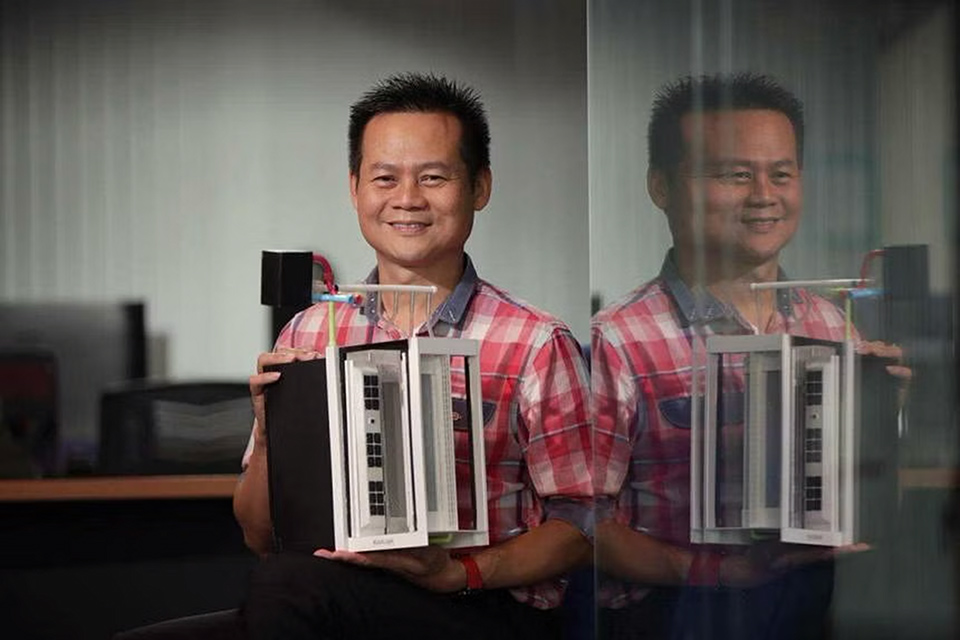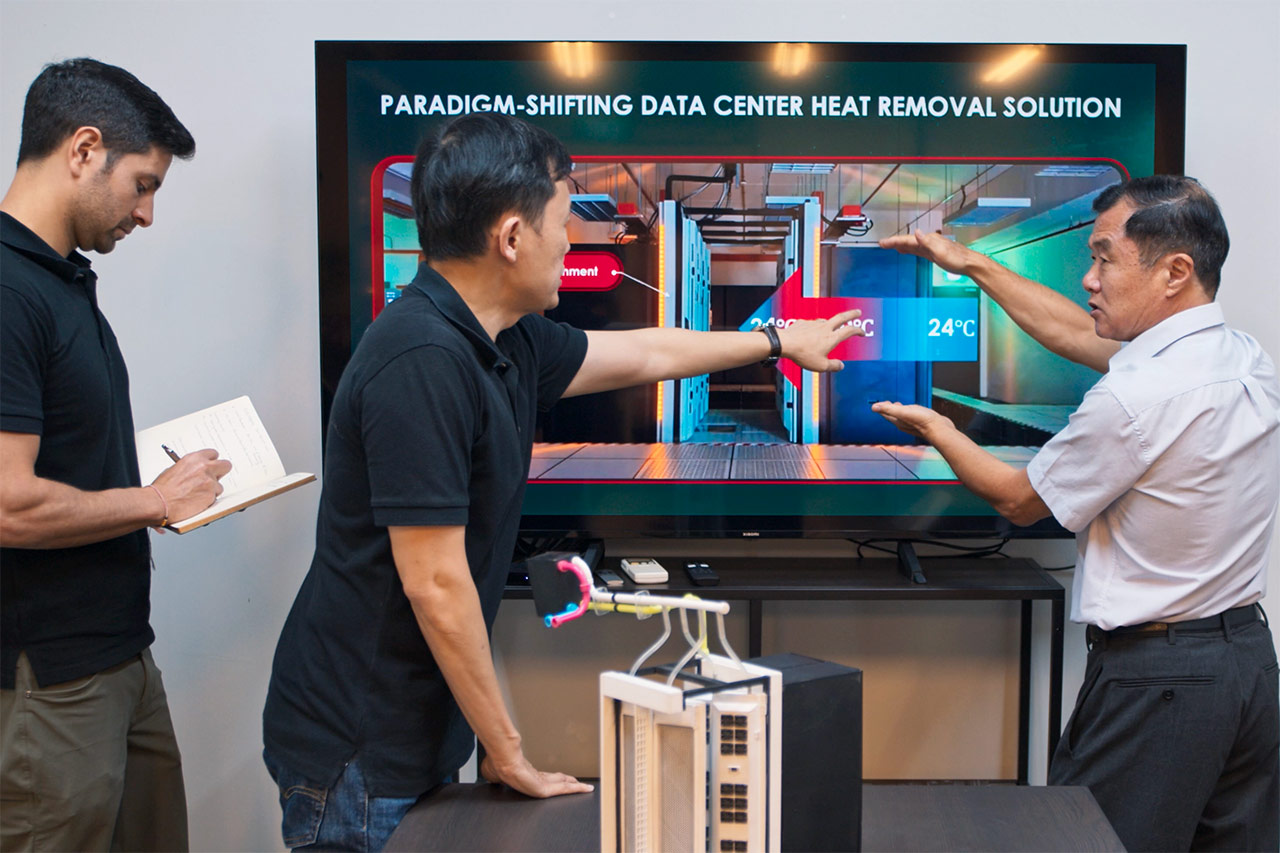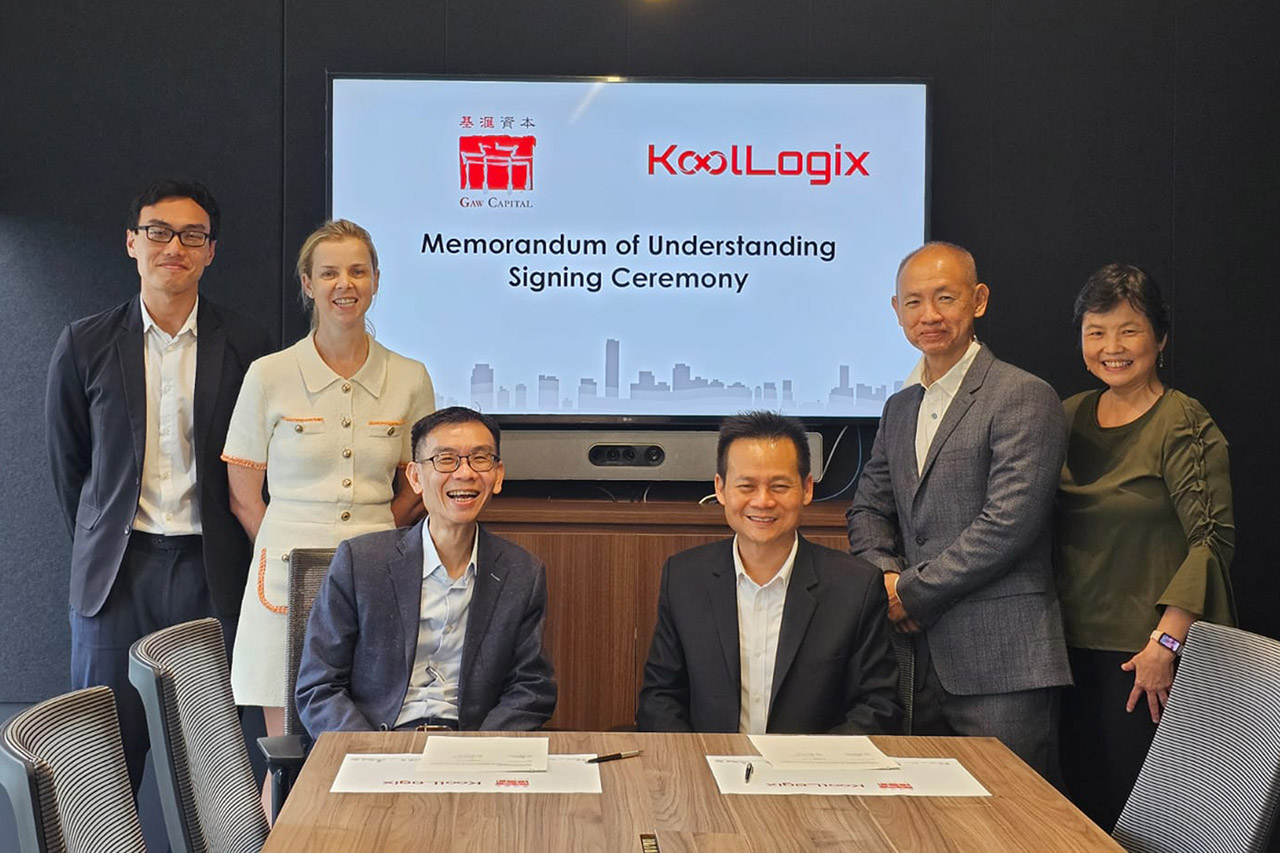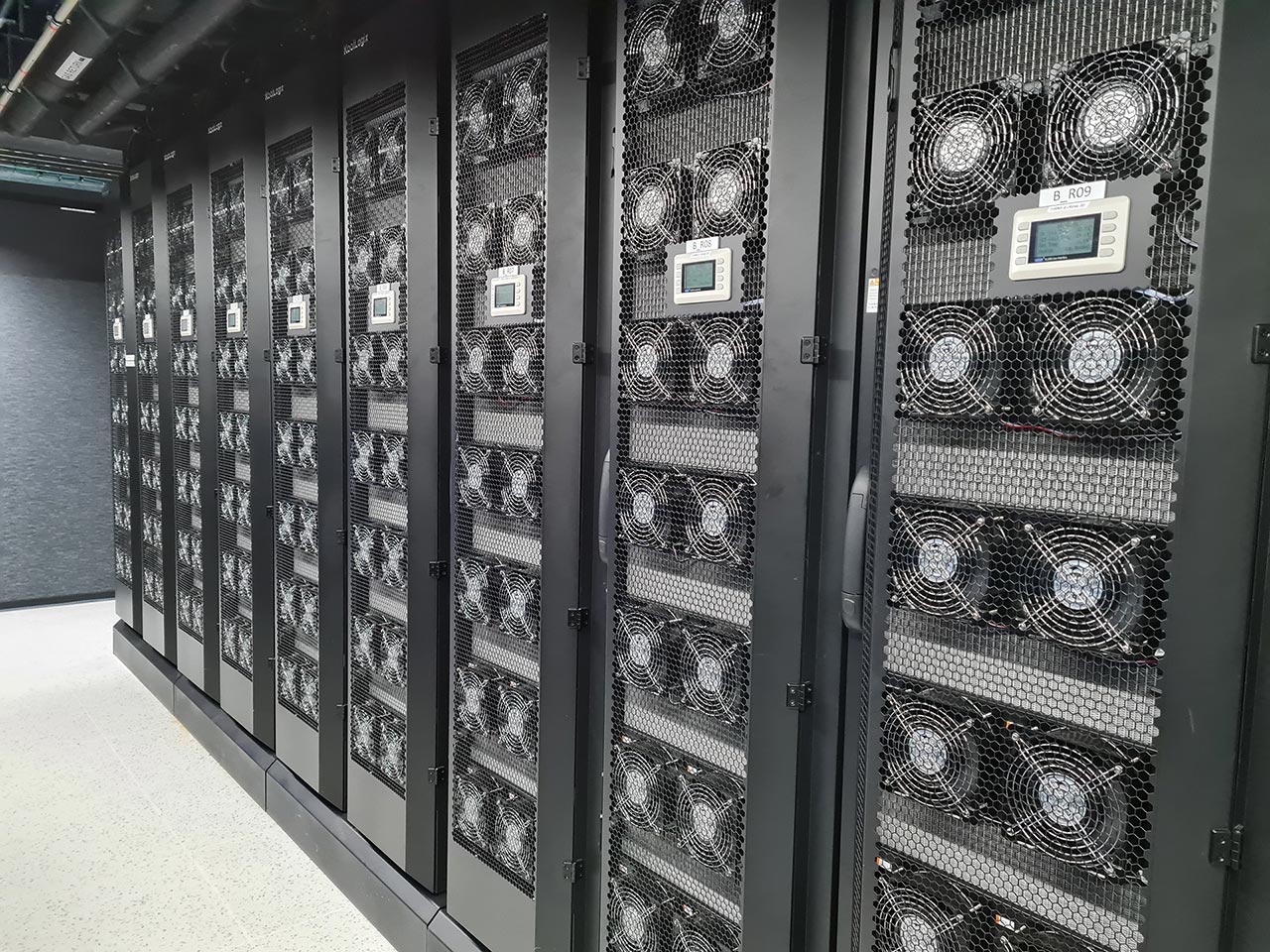KoolLogix’s chief executive Cheong Chun Keat with the KoolLogix heat removal solution model. ST PHOTO: GIN TAY
SINGAPORE – When local start-up KoolLogix needed an injection of funds to complete a new test lab facility to test its heat removal solutions for data centres, it turned to Enterprise Singapore (ESG).
Introduced in 2021 by the government agency, the Enterprise Financing Scheme-Green (EFS-Green) has been helping companies access green financing.
The scheme is targeted at businesses that develop technologies and solutions to reduce waste, resource use or greenhouse-gas emissions, especially in clean energy, circular economy, green infrastructure and clean transportation.
In total, 50 small and medium-sized enterprises developing and providing green solutions have received support, and close to $260 million of green loans have been given out so far.
Beneficiaries include companies in solar energy, energy storage, energy efficiency technologies, electric vehicle technologies and more.
Said KoolLogix’s chief executive Cheong Chun Keat, 51: “I’m very glad that there are now these schemes that support green enterprises. I hope that they can extend this support to non-green companies that are trying to adopt sustainable technology. This will contribute to Singapore’s journey towards sustainability.”
Mr Cheong started the data centre thermal management solution start-up in 2018 with a team of three people.
He said data centres, which were reported to account for 7 per cent of Singapore’s total electricity consumption in 2020, can reduce their energy costs by up to 50 per cent with KoolLogix’s heat removal solutions.
“KoolLogix’s heat removal technology is also able to reduce carbon production by up to four times as compared to our competitors,” he added.
Another company that received EFS-Green funding is Durapower Group, an energy storage solutions provider.
Durapower manufactures sustainable batteries that support the circular economy and transformation towards a carbon-neutral future.
The loan was for Durapower to speed up the development and distribution of its high-tech energy storage solutions for the Tuas Port’s automated guided vehicle (AGV) fleet.
These energy storage solutions include lithium-ion batteries for a number of AGVs at Tuas Port. Durapower is in charge of the design, manufacturing, supply, and commissioning of these battery solutions.
“As an alternative to fossil fuels, lithium-ion batteries are a more sustainable energy source which causes less negative environmental impact,” said Mr Kelvin Lim, chief executive of Durapower.
“With sustainable, innovative, and low-carbon energy solutions, the AGV fleet is a significant element towards a greener port.”
Home-grown marine company Penguin International also tapped EFS-Green to design, build and operate three electric ferries and rapid shore chargers.
The firm specialises in the design, construction, ownership and operation of high-speed aluminium ships.
These ferries will transport more than 3,000 workers to and from Shell’s Energy and Chemicals Park on Pulau Bukom, replacing the diesel-powered ferries currently being used.
“Dubbed the Electric Dream ferries, these will be Singapore’s first fully electric seagoing ships that will help Shell reach its net-zero ambitions,” said Ms Joanna Tung, finance and administration director of Penguin.
She added: “While we do not see ourselves pivoting away from our mainstream shipbuilding and chartering businesses anytime soon, this project certainly represents a big plunge by Penguin into the maritime decarbonisation business.”
Companies have also leveraged the scheme to scale their business and expand to new markets, said Mr Geoffrey Yeo, ESG’s assistant chief executive for urban solutions, sustainability and enterprise finance.
“This in turn accelerates industry adoption of green solutions and technologies, and brings us closer to our climate goals,” he added.
This article is from The Straits Times (Retrieved 16 Apr 2024)





